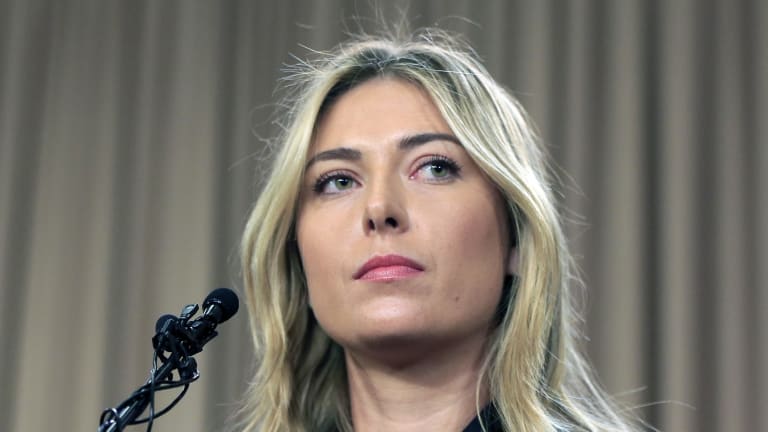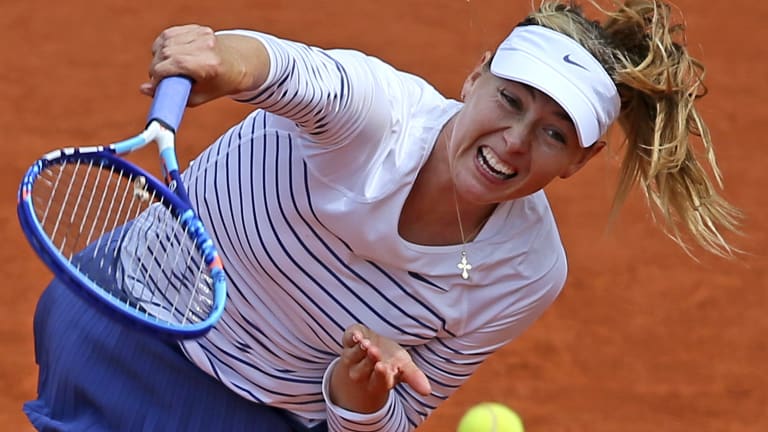Sharapova talks ban, ITF and meldonium with Charlie Rose
By Oct 05, 2016The Business of Tennis
Jannik Sinner surpasses 50 million dollars in career prize money after winning Vienna
By Oct 27, 2025Your Game
Tecnifibre releases special-edition Danille Collins pickleball paddle
By Oct 04, 2025Style Points
Spotted: Carlos Alcaraz checks out Roger Federer’s ultra-rare Rolex at Laver Cup
By Sep 24, 2025Your Game
Racquet Preview: Solinco unveils Blackout V2
By Sep 24, 2025Player News
Elina Svitolina shuts down 2025 season “to heal and recharge”
By Sep 23, 2025Your Game
Geared Up: Victoria Mboko is turning heads in all Wilson
By Sep 23, 2025Lifestyle
Victoria Mboko: 'Legacy in motion' captured in Rolling Stone Africa cover story
By Sep 22, 2025Social
Introvert King Taylor Fritz sends cat memes at the club after Laver Cup victory
By Sep 22, 2025Player News
Beatriz Haddad Maia ends season to focus on health: "The best is yet to come"
By Sep 22, 2025Sharapova talks ban, ITF and meldonium with Charlie Rose
The Russian told her side of the story on PBS on Tuesday night.
Published Oct 05, 2016
Advertising

Sharapova at a press conference in May 2016, when she announced that she'd failed a doping test for meldonium.
© AP

Sharapova talks ban, ITF and meldonium with Charlie Rose
© AP